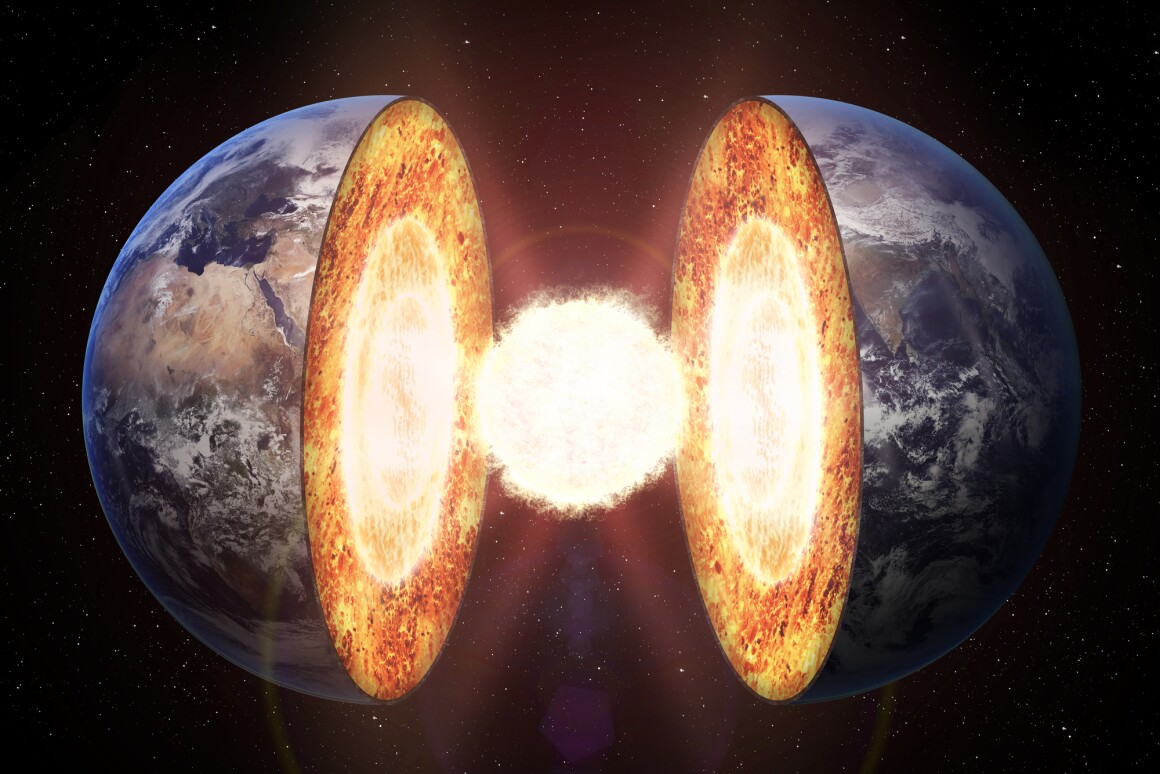 Image copyright MILLENNIUM PRIZE
Image copyright MILLENNIUM PRIZEAmerican scientist Frances Arnold, who won the Nobel Prize for chemistry, has retracted her latest paper. Prof Arnold shared the award with George P Smith and Gregory Winter for their research on enzymes in 2018.
Written by BBC
 Image copyright MILLENNIUM PRIZE
Image copyright MILLENNIUM PRIZEAmerican scientist Frances Arnold, who won the Nobel Prize for chemistry, has retracted her latest paper. Prof Arnold shared the award with George P Smith and Gregory Winter for their research on enzymes in 2018.
Written by Stephen Wells

Picture a sphere suspended in space. It’s a small sphere. Small enough that it’s gravity is negligible and can be discarded as irrelevant to the calculations and thought experiments that we are about to subject it to. Let’s give it a surface area of 1 square meter.
Written by James DeMeo, PhD

This is Part Two summarizing James DeMeo’s new book indicating that modern cosmology erred in hastily dismissing the evidence for a cosmic ether. Part One is here.
Written by James DeMeo, PhD

This is Part One summarizing James DeMeo’s new book indicating that modern cosmology erred in hastily dismissing the evidence for a cosmic ether. Part Two is here.
Written by John Stossel

“The world is going to end in 12 years if we don’t address climate change!” says Rep. Alexandria Ocasio-Cortez.
Really? 12 years? John Stossel recently moderated a debate held by The Heartland Institute.
Written by Michael Irving

A team of geologists from China and the US have found evidence to suggest that snow may be falling within the broiling hot core of planet Earth. Of course, this isn’t your everyday surface snow – the researchers say that these flakes would be made of iron alloys, gently settling down onto the solid inner core through the more fluid outer core.
Written by Peter H. Diamandis, MD

image source: singularityhub.com
How each of us sees the world is about to change dramatically.
For all of human history, the experience of looking at the world was roughly the same for everyone. But boundaries between the digital and physical are beginning to fade.
Written by Ethan Siegel

The clustering of galaxies in the Universe on the largest observable scales, where each pixel represents a galaxy. Image credit: Michael Blanton and SDSS collaboration.
“Because philosophy arises from awe, a philosopher is bound in his way to be a lover of myths and poetic fables. Poets and philosophers are alike in being big with wonder.” –Thomas Aquinas
The Universe is a vast, mysterious place, encompassing everything we’ve ever known, observed or could ever hope to come into contact with.
Written by Dr Klaus L E Kaiser

A recent news post at Gizmodo claims to show “The Satellite Images That Show a Decade of Climate Change.” Needless to say, it was widely mentioned in the mainstream media.
The top photo in this “documentary” (above) shows a satellite shot with apparently numerous fires burning over a landscape of approximately 600 km in horizontal extent.
Written by NASA

The wind speed of a devastating Category 5 hurricane can top over 150 miles per hour (241km/hour.) Now imagine another kind of wind with an average speed of 0.87 million miles per hour (1.4 million km/hour.)
Welcome to the wind that begins in our Sun and doesn’t stop until after it reaches the edge of the heliosphere: the solar wind.
Written by Emerging Technology from the arXiv

In February 2016, an international team of physicists announced the first direct observation of gravitational waves. The waves had been produced by the gigantic collision of a pair of black holes, each about 30 times the mass of the sun—a smash so cataclysmic that it sent ripples through the fabric of spacetime.
Written by Kevin Jiang

In an effort to address the critical public health need for new, safer and more effective medicines to treat pain, a consortium based at the Laboratory of Systems Pharmacology (LSP) at Harvard Medical School has launched an ambitious project titled STOP PAIN (Safe Therapeutic Options for Pain and Inflammation).
Written by G.C. Beaujon

How much of our humanity are we willing to lose? It would appear that this question is becoming most pertinent in our age. But another, more fundamental, question foregrounds this one – what is a human being? Are people bio-mass? If so, then only one idea is required to exist on this planet, namely, how best to manage populations.
Written by Dr. Raymond H.V. Gallucci, P.E. (ret.)

Abstract. It has been known for nearly three centuries that, to view a clear image of a star through a telescope, it is necessary to tilt the telescope slightly forward in the direction of the earth’s motion, a phenomenon known as “stellar aberration.”
Written by Huyen Nguyen

By the mid-nineteenth century it had become generally accepted that much of Europe had once been covered by glacier.
The cause for such dramatic shifts in the Earth’s climate was unknown until James Croll (pictured above), a janitor, at Anderson’s University in Glasgow proposed the idea that variations in the Earth’s orbit might have precipitated ice ages.
Written by Tim Ventura

Imagine a battery that runs for years on end, promising endless energy from a clean, safe, environmentally-friendly form nuclear technology. Learn about the compelling quest for a true portable, pocket-sized nuclear battery…
It’s the middle of August and I’m standing in the basement of an aging brick house a few miles outside of Redmond, grateful to be in a cool area on a hot, muggy day.